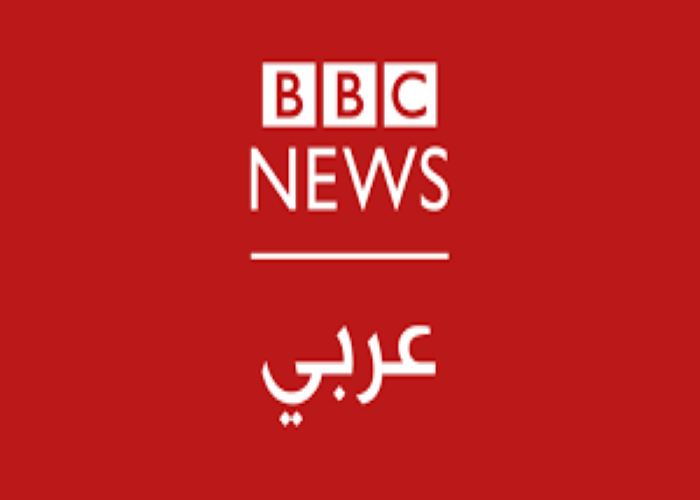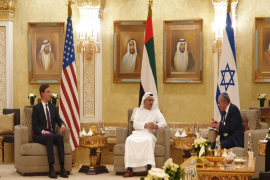Written by CAMERA Arabic, with thanks to Dr. Yagil Henkin and CAMERA advisor Dr. Meir Masri for their help. All translations, emphases and in-bracket remarks are by CAMERA Arabic unless otherwise specified.
Introduction: did the Israeli army really burn defenceless Egyptians alive in Latrun?
Last July Israeli journalist Yossi Melman tweeted information about a battle between Egyptian and Israeli forces during the 1967 Six-Day War which was subsequently the basis for a report published by the Ha’aretz newspaper. Presenting details that had reportedly been under military censorship for nearly 55 years, Melman and eyewitness Ze’ev Bloch – the IDF commander in the area at the time – disclosed that dozens of fallen Egyptian soldiers lie beneath the car park of the ’Mini Israel’ tourist attraction near Latrun. They also revealed that the IDF soldiers who had originally found and buried the bodies had neglected to identify them and to mark the graves, contrary to international law. Allegedly, some looting of the Egyptian soldiers’ personal property also took place.
Many of the fallen Egyptian soldiers seem to have belonged to a specific group, initially located in an uncultivated field of scrub vegetation and dry thorns during an exchange of fire with the IDF. Approximately twenty of them became trapped in the area when it went up in flames as a result of the battle and the weather conditions and were burnt alive. At the end of the battle the IDF captured a few survivors as prisoners of war (POWs), some of whom had lost their weapons during the battle and the fire that followed.
Although it appeared as an integral part of the July 2022 report by Melman and Haaretz (together with the “Akevot” NGO), that chain of events was not unknown and had never been censored: at least two Israeli studies of the war, published in 1967 and 1982, mention it in full.
While the account published shortly after the war (“From Hermon to Suez” by David Dayan, pp. 168) asserted that it was the Egyptian fire that ignited the field, a later one (“Latrun” by Aryeh Yitzhaki, pp. 544) argued that the IDF deliberately fired into the dense underbrush in order to ignite it, apparently so that the retreating Egyptian combatants would be forced out of their hideouts. Yitzhaki nevertheless posited that it was explosives that the Egyptian force had carried which eventually killed its own men after having been accidentally triggered inside the burning fields. Ze’ev Bloch cited IDF mortars, shot as part of the ongoing battle, as the weapon which unintentionally caused the undergrowth in the immediate vicinity of the Egyptian soldiers to catch fire and turn into a death trap.
All sources hence agreed that this event occurred in the heat of a battle and none of them – be it from the 1960s, the 1980s or last year – alleged that the IDF had deliberately killed Egyptian combatants, not least unarmed soldiers, by burning them alive.
“At least 20 Egyptian soldiers were burnt alive and buried by IDF in a mass grave”, was how Melman phrased his first tweet on the issue (July 8, 2022). Further on in the thread he added, “at a certain point IDF fired mortar shells and thousands of uncultivated dunams of wild bush in the dry summer were set on fire,” again omitting the simultaneous Egyptian counter fire.
That poor (not to say irresponsible) choice of words, as well as the fact that Haaretz’s English edition featured an image of a surrendering Egyptian soldier in its translated article, led several media outlets to paint a very different picture to the one presented by the primary sources. At those outlets the true story was overshadowed by the completely unfounded claim that IDF soldiers had burned defenceless Egyptians alive. Moreover, a few Arabic outlets failed to translate the English properly and therefore asserted that the victims were POWs who were either “burned alive” or “buried alive” after they had already surrendered. All of the above was picked up by certain public figures in Egypt, looking to gain quick political capital off the back of the ’Zionist enemy’.
While rejecting the notion he was somehow accountable for those misrepresentations in communication with CAMERA’s Hebrew department “Presspectiva,” Melman stressed in a July 11 op-ed that he published together with Bloch that the IDF did not “maliciously” burn the enemy soldiers in question.
BBC Arabic’s Cairo bureau picks up the story, promotes Holocaust analogy
For BBC Arabic’s Cairo bureau, however, that misunderstanding served as the basis for an entire ’dual narrative’ story.
In a series of four different news items uploaded within a week (July 12-19, 2022) to BBC Arabic’s website and social media channels, the service reframed the whole story as being about the alleged Israeli war crime of murdering defenceless Egyptians: a claim that no knowledgeable party has ever made. As a first step, using Arabic social media comments on the report, on July 12 the BBC turned to a local Cairo pundit to prepare a Q&A item for readers:
“The BBC blog directed inquiries by social media influencers to an expert at the Egyptian Center for Political and Strategic studies, Ahmed Kamel al-Beheiri, for him to answer.”
In response to the question “have Israeli political and military leadership breached international treaties?”, al-Beheiri replied as follows:
“[…] If what is being circulated about burying POWs alive is true, this is contrary to international law and [every] humanitarian aspect […] this massacre could be a new ‘Holocaust’ [Arabic: هولوكوست] conducted against unarmed Egyptian soldiers […]”
Even if the claim that IDF soldiers had buried Egyptian POWs alive in Latrun had been true (and the BBC offered no new evidence to support that allegation), that offensive “Holocaust” reference from a purported ’expert’ should not have been uncritically promoted by the BBC. Notably, BBC Arabic corrected a similar analogy in the past, following communication with CAMERA UK.
That, however, was only the first of several examples of problematic content published by the UK’s publicly-funded broadcaster. BBC Arabic presented unchallenged claims with almost no proper context which appeared to be intended to falsely portray the Latrun battle as a story of two competing ’narratives’.
Using a fake witness, two BBC Arabic journalists perpetuate the libel further
Cairo-based staff members of the BBC’s Arabic service, Abdel Basir Hassan and Reem Fatthelbab presented their own interviews with Bloch and Melman (neither of which provided any new information) as ’the Israeli narrative’. The two Egyptian journalists then actively searched for evidence to back up the misinformed coverage that the story had already received in the Arab world. As Hassan himself stated to the camera in one of his video items:
“The journalist’s [Melman] investigation emphasised that the soldiers’ death in fire was not intentional, despite some of them being unarmed when they were surrounded. This comes despite Arabic media narratives reporting that the soldiers were killed or burned on purpose after some of them surrendered […] We tried to look for the other narrative [i.e., the Arab one] here in Cairo.”
BBC Arabic brought in octogenarian veteran General Mukhtar al-Far, who in 1967 was a young officer in the same Egyptian commando force that was deployed to the Jordanian-occupied West Bank. In the text accompanying the first video by Hassan and Fatthelbab which was uploaded to BBC Arabic’s website and Facebook channel on July 15, al-Far and Bloch were described as “two retired officers, an Egyptian and an Israeli, who had witnessed what happened.” CAMERA Arabic has added English subtitles to that first video:
Had the BBC’s Arabic service really unearthed a genuine eyewitness who could contradict ’the Israeli narrative’ and introduce reliable testimony into the discussion about Egyptian POWs whom the Israelis allegedly ’buried alive’? In his 1967 book, Dayan indeed mentioned a captain (al-Far’s rank at the time) and a major who were two of “only a few” Egyptian soldiers to escape the fire and evade Israeli captivity. However, even Hassan’s own written article – published the next day alongside additional parts of al-Far’s testimony – presented a different picture:
“Regarding what he remembers of the reported mass grave in Latrun, he [al-Far] said:
‘I learned on June 17 from the surviving soldiers of a patrol led by an officer named Medhat Rayyes that a clash took place on June 6th, [where he faced] more than a hundred armored vehicles and a hundred tanks, [all] destined to occupy the West Bank.’
“There is nobody with whom to corroborate whether this patrol is one of the two groups referred to in the Israeli reports about Latrun. But what is being resounded does indicate that some of its soldiers were killed and buried in the area. He [al-Far] added:
‘There was a clash with (Rayyes’s) patrol, in which 30 people – a third of the force – were wounded, while the commander managed to escape with the rest […] as for the wounded, the tanks closed on them and they got killed.’
“Regarding the mass grave reports, al-Far suggested that the aforementioned 80 bodies belonged to ‘a total of those killed separately in [multiple] clashes,’ noting that the story of the soldiers being burned ‘is new to him as an Israeli conduct’ but that ‘he is used to the Israeli forces killing and burying their opponents alive on previous occasions, especially if they suffered heavy casualties.’”
So according to the July 16 article by Hassan (who published the July 15 video together with Fatthelbab) al-Far’s entire knowledge of the Egyptian soldiers’ fate in Latrun was derived from what he heard from others several days after the war was already over. Furthermore, al-Far based his assessment that IDF soldiers had burned and buried their opponents alive on “previous occasions” with which he claimed to be familiar.
The question of whether the accounts of Bloch and al-Far carry equal weight on the topic of what happened in Latrun on the morning of June 6, 1967 is mostly avoided in an extended version of the July 15 video which was uploaded to YouTube on July 19and provides the third version of al-Far’s testimony. Hassan does refer only to Bloch as an “eyewitness” in the text accompanying this newer video and also states that the retired general “participated in the same task and returned safely with his soldiers”. However, unlike the July 16 article, the July 19 video omits two critical points. Firstly, Hassan refrained from clarifying that al-Far was not located anywhere near the Latrun battle. Secondly, the segment in which al-Far himself admitted that he based his war crimes allegations on hearsay was edited out once again, as was also the case in the July 15 video which did present him as a genuine “witness”.
CAMERA Arabic has added subtitles to 4 out of 5 minutes of the entire BBC Arabic video from July 19, including Bloch and al-Far’s testimonies and Melman’s interview:
To sum up, in three separate items published in the same week, BBC Arabic presented three different versions of its own guest’s credentials. CAMERA Arabic is now able to provide a fourth version: that of al-Far himself in an interview with a group of Egyptian military historians. The original video was uploaded on July 25, 2022, i.e. not long after al-Far’s BBC appearances. We added subtitles to the part concerning his engagement with Israelis during the first days of the war and his further insights:
As we see, after the BBC reports were already online, Egyptian historians published a recording of al-Far acknowledging that throughout his entire West Bank campaign, he never personally encountered any Israeli force of substantial size (apart from minor incidents like the one with the female guards in sleeping bags). As though that were not enough to discredit him as a reliable witness, he stated that he determined whom to target based not on whether or not they were combatants, but rather whether they were “Muslims,” “patriots,” (1:10) “women and children” (0:49) etc. – such was his “Islamic method” (0:43).
Additional evidence of al-Far’s views regarding Israel are found in footage of him expressing his deep conviction that Israel’s upcoming destruction was promised to Muslims worldwide by the holy Qur’an which was recorded weeks prior to the appearance of Melman’s ’scoop’:
Showcasing a gallery of dubious ’experts’: antisemites and conspiracy theorists
The July 16 article and July 19 video featured two additional Egyptian interviewees: Major General Nagi Shahud – who offered his perspective on the future of the Israel-Egypt relations – and political science professor Tarek Fahmy, who spoke about Israel’s internal arena. Although neither of the two said anything even as remotely contentious as the other contributors al-Beheiri and al-Far and did not address specific details about what happened in Latrun, their past record on Israel is nevertheless relevant.
In the 2017 video below, Maj. Gen. Shahud claims with great certainty that “barren” Jewish women marry Bedouin men in Sinai so that they get pregnant quickly and consequently ‘Judaise’ Sinai’s population. To him, this is all a part of a plan to give Israel the excuse it needs to invade Sinai again (translation and subtitles by MEMRI):
Shahud has repeated this conspiracy theory to various media outlets in Egypt at least four times since, most recently in October 2021 when he was also quoted as citing “the Jewish enemy.”
Fahmy served as the head of the Israeli studies unit in Egypt’s National Center for Middle East Studies. In 2020, when he commented on the possibility that Gal Gadot would portray Egyptian queen Cleopatra in a future film, he stated:
“Israel has no art, creativity or culture. Whoever speaks to us about Israel’s artistic genius, let them present us names of films far from the Jewish Lobby’s interference, which plays a direct role in the world’s [film] festivals.”
In the same 2020 Facebook post he also opposed the narrative of “Jewish grievance” in various Arab television programmes which address the topic of former Jewish communities of Arab lands.
How Important are facts in BBC Arabic’s echo chamber?
The impartiality of each of the Egyptian ‘experts’ brought in by BBC Arabic to contribute to its coverage of this story is obviously highly questionable. Between al-Beheiri’s Holocaust inversion, al-Far’s fake testimony and prophecy of Israel’s demise, Shahud’s ‘suspiciously fertile Jewesses’ and Fahmy’s idea of a Jewish lobby disrupting Hollywood, the input they provide on anything involving Israel obviously cannot be considered objective and the BBC Arabic Cairo bureau’s construction of its entire ’Egyptian narrative’ around what the four had to say clearly raises many questions.
Such practices are hardly a rarity in the Arabic-speaking press, especially when Israel or Jews are concerned. CAMERA Arabic has previously addressed this phenomenon multiple times, for example regarding the Arabic editions of The Independent and Sky News. Even worse are platforms such as al-Mayadeen or Aljazeera which are wholly branded, owned and operated by local players.
BBC Arabic, however, is an outlet funded by the British public and bound by the BBC’s own editorial guidelines which are supposed to prevent such cases of exceptionally bad journalism. This is particularly important given that the outlet’s target audience includes millions of Arabic speakers worldwide.
The fact that these ’investigative’ pieces about ’the dual Latrun narrative’ were deemed suitable for publication by BBC Arabic demonstrates once more the lack of effective oversight of that branch of the World Service. Standards of fact checking, accuracy and impartiality should be upheld in content produced in languages that most British citizens do not speak (BBC management included) just as they are in English language content.
In this case, the failure to uphold such standards resulted in a fabricated ’dual narrative’ story which does not serve the interests of BBC audiences worldwide and seriously compromises the BBC’s claim to produce accurate and impartial journalism.





